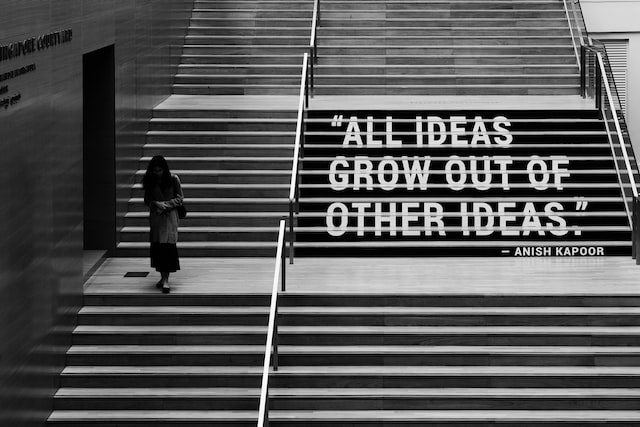By Dylan Mathews, CEO, Peace Direct
Looking at the news these days, with the wars, famines and aid cuts (and let’s not forget the unprecedented soul-searching taking place about the problems in our development sector), you would be forgiven for wanting to bury your head in a pillow and sob until it’s all over. But if you did, you would be missing something quite wondrous which has started to emerge over the past few years. People and groups are starting to talk about changing the ‘system’ and many are launching initiatives that attempt to take a systems approach to the mess and complexity we see in the world.
As with so many terms and jargon, we nod appreciatively without stopping to ask ourselves what the terms really mean. I wrote about this in relation to localization and decolonizing recently, and the same applies here. What do we really mean when we talk about systems change, and why is it so important?
Systems thinkers are notoriously bad at describing what it is they do, and what they mean. So I am going to try and give the simplest possible explanation that was taught to me recently. A system is a group of things (people, organizations, networks etc.) that are seen by someone as interacting together to do something. There you have it. International development can be regarded as a system, as it comprises many different entities interacting to tackle poverty and inequality. Peacebuilding, which is the sea I spend most of my time swimming in, is both a system in itself and also a sub-system, nested within the broader international development and humanitarian system.
A system is a group of things (people, organizations, networks etc.) that are seen by someone as interacting together to do something.
The interconnectedness of, and relationship between, things is part of what makes something a system. Take for example, crime in the UK. The government may consider putting more police on the streets and tougher sentencing as the most important ‘solutions’ to tackling crime. But any sensible person, and certainly anyone who sees crime from a systems perspective, would laugh at the idea that these two solutions will really solve the problem. What about the focus on the rehabilitation of offenders (in the UK, 75% of ex-inmates reoffend within nine years of release)? Or tackling exclusion, vulnerability, poverty or a lack of educational opportunities? Using simple linear cause and effect logic to solve complex issues such as crime, poverty or inequality is like plugging a leaky boat with your finger, only to ignore the thousand other holes that are letting in water, while the boat isn’t being steered by anyone, in the dark, with no navigation equipment.
Virtually every pressing social issue of our times is part of a complex system which includes forces that either maintain the problem or are trying to solve it. Often, both happening at the same time. Understanding a situation in its richness and complexity is what systems thinking is about. In fact, some rather clever people describe the complexity of these sort of issues as ‘messes’ or ‘wicked problems’ to distinguish them from more simple linear problems that have a more obvious solution.

Once you start to look into the description of a mess or wicked problem, you begin to realize that almost every single issue in our sector conforms to that definition. Climate change, poverty, social inequality and gender inequality are all wicked problems. Did I say something earlier about wanting to bury my head in a pillow and sob? Most of us are plugging just one hole with our one solitary finger.
The funny thing is that most of us know instinctively that the issues we are tackling are immensely complex. So why do we keep plugging away at our logframes and in our silos? The most obvious answer is that we are simply not accustomed to thinking systemically. We have been brainwashed by our own so called ‘professionalism’ to look at the world in terms of projects, inputs and outputs. Even though most of us know that the world doesn’t work this way and our efforts to help others is severely diminished as a result. The truth is that it can feel often daunting and overwhelming to look at an issue from a systems perspective because it’s a muscle we don’t use very often. Of course, that’s not the only reason we don’t adopt systems thinking more in our work. Short-term funding cycles and tyrannical Monitoring and Evaluation regimes that we impose on our work and others (and are sometimes imposed upon us), the fear of mission creep, the aversion to embracing complexity and uncertainty and the desire to satisfy our own individual and organizational egos are perhaps some of the other factors at play.
Virtually every pressing social issue of our times is part of a complex system which includes forces that either maintain the problem or are trying to solve it. Often, both happening at the same time.
Peace Direct’s journey in thinking systemically started around a decade ago. At the time, my predecessor recognized that we didn’t stand a chance of shifting power and resources to local peacebuilders if we didn’t tackle the broader problem of how local civil society actors in the Global South were side-lined by the international community. In other words, we recognized that peacebuilding is a sub-system within the broader international development and humanitarian system. So, in 2012 we launched ‘Local First’ a research, advocacy initiative and campaign designed to influence the broader sector to being more locally-led. This led to our book ‘Local First in Practice’, a book showcasing case studies of effective locally-led development, which we hoped would catalyze change in the sector.
All of this work met with some resistance internally. After all, we were and are a peacebuilding organization, and so veering into international development felt like mission creep to some. But looking at the situation from a systems perspective, it was clear that some silo busting was necessary. Our ‘Time to Decolonise Aid’ report, launched last year, was very much in that same tradition.

Does this mean that systems thinking forces us to break free of our silos and work across different disciplines? Well, the short answer is yes and no. Yes, we have to think beyond our silo and understand the richness of the picture that we are painting. But that doesn’t mean we have to work in those areas. Specialism is useful, after all. What it does force us to do is consider how we connect, collaborate, or at least coordinate with others in adjacent sectors whose work impacts on ours. And the truth is that we aren’t very good at that. Even the humanitarian cluster system, whose aim is to ‘strengthen system-wide preparedness and technical capacity to respond to humanitarian emergencies’ tends to fall into the trap of coordination within their respective silos, rather than coordination across silos. Inter-cluster coordination is still the exception, rather than the norm. We seem to like our tribes and we prefer to stick within them.
Once we start to get comfortable with the idea of using systems thinking in our work, we may not only be better able to understand how best to change the particular situation that concerns us most, but more excitingly, we may be able to start thinking about changing the system itself. Changing the goals or rules of the system, or perhaps the structure of the system, are the jewels in the crown of systems change. And if we are being really ambitious, we could try and change the mind-sets that underpin the system itself. That is the holy grail of all systems change advocates.
Once you start to look into the description of a mess or wicked problem, you begin to realize that almost every single issue in our sector conforms to that definition.
It is a huge relief that many people are now embracing this way of thinking. Bond’s sector catalyst initiative, launched last year, is rooted in systems thinking, and they even produced their own systems map, which in true systems thinking tradition, looks much like a Jackson Pollock painting. The RINGO Project has done the same. And #ShiftThePower. Ashoka has launched a systems change online course. And Forum for the Future, who were an early adopter of systems thinking in the sector, has now spun off their School of Systems Change as a separate entity. I could go on. The choice is bewildering, so if you want a good place to start, I’d suggest reading ‘Leverage Points: Places to Intervene in a System’ by the wonderful Donella Meadows.
The proliferation of systems change initiatives signals an evolutionary shift in our thinking. We are moving away from a projectized and linear way of tackling issues starting to embrace complexity and uncertainty. We are beginning to think and act relationally and not a moment too soon. We can’t hope to solve the issues of our time if we remain stuck in our silos.
Remember that moment in the film ‘The Wizard of Oz’, when Dorothy opens the door of her house, having been deposited in a magical land by a hurricane, to discover a world in technicolour – a vibrant, breathtaking, expansive world which resets her way of seeing? Monochrome Dorothy could never be the same. That’s us. We all are learning to see, act and move in a different way.
Speaking of moving, I’d like to leave you with another wonderful piece by Donella Meadows, entitled ‘Dancing with Systems’ in which she reminds us at the end that systems thinking cannot bridge the gap between understanding and implementation. ‘But it can lead us to the edge of what analysis can do’ she says ‘…and then point beyond – to what can and must be done by the human spirit.’
If you liked this article, you might also like;
Localization, decolonizing and #ShiftThePower; are we saying the same thing?
Making the invisible visible: #ShiftThePower, mapping and meaning.

